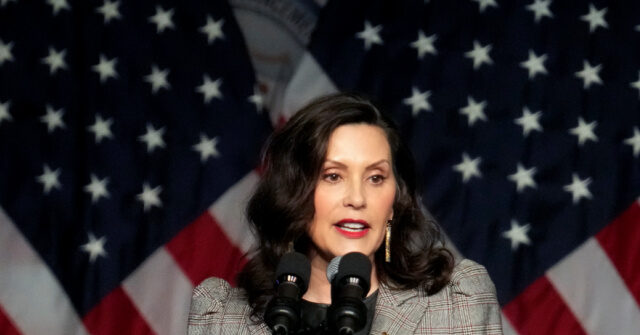Following the conclusion of the election, Michigan Governor Gretchen Whitmer extended her well wishes to President-elect Donald Trump, encouraging him to unify the nation in his upcoming term. Despite having previously labeled Trump a “charlatan” and “weak” just weeks before the election, Whitmer issued a conciliatory statement on social media. She acknowledged the outcome as a clear message from the American populace, expressing hopes that Trump would strive to bridge divides and foster unity among all citizens, including those who did not support him. Whitmer emphasized that the role of a president is to work for the greater good of the country, underscoring the importance of leadership in challenging times.
In her message, Whitmer also took the opportunity to express gratitude towards President Joe Biden for his leadership and praised Vice President Kamala Harris for running an impressive campaign. This acknowledgment reflects a broader ethos of respect for democratic processes and the successful exercise of electoral choice, reinforcing the significance of recognizing those who hold office, irrespective of political differences. Whitmer’s remarks serve as a reminder that public service involves collaboration and recognition of diverse perspectives, fostering an environment where constructive dialogue can take place.
As the governor of Michigan, Whitmer asserted her commitment to serving the people of her state, regardless of the political landscape at a national level. She reiterated that her primary focus remains on addressing the needs of Michiganders and that she aims to continue her efforts in improving lives through effective governance. Notably, she recognized the importance of the new majority in the Michigan State House, suggesting that this development would enable her administration to further advance its objectives for the state.
In her closing statements, Whitmer underscored the idea that Americans, irrespective of their political affiliations, share a common patriotism and should uphold mutual respect for one another. She encouraged a sense of communal identity among Michiganders, emphasizing that valuing and respecting fellow citizens transcends party lines. This message of unity reflects a desire to cultivate a society where individuals can coexist and collaborate despite differing opinions and ideologies.
Whitmer urged citizens to remember the fundamental decency and kindness that exists within the American populace. By focusing on what binds people together rather than what divides them, she posited that it is possible to foster a spirit of cooperation that can lead to tangible progress at both state and national levels. Her call for collaboration echoes a widely acknowledged sentiment that unity is crucial for overcoming challenges faced by the nation, especially during politically charged times.
Regarding the election results, Trump narrowly secured Michigan with 49.8% of the vote against Harris’s 48.3%. This outcome stands in contrast to the 2020 election when Biden achieved victory in Michigan with 50.6% over Trump’s 47.8%. The shifting political dynamics of the state highlight the complexities of electoral behavior, indicative of a changing voter landscape that warrants attention as policymakers and leaders move forward. In summary, Whitmer’s statements reflect a commitment to leadership and unity, challenging both herself and others to prioritize collaboration over division in a time of significant political change.

